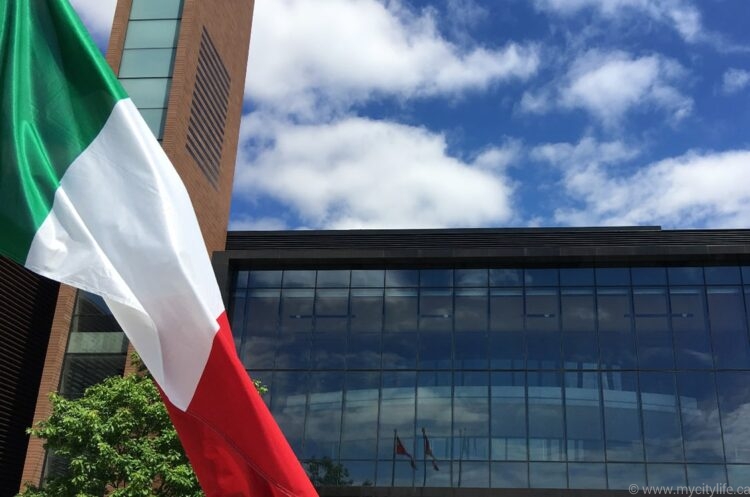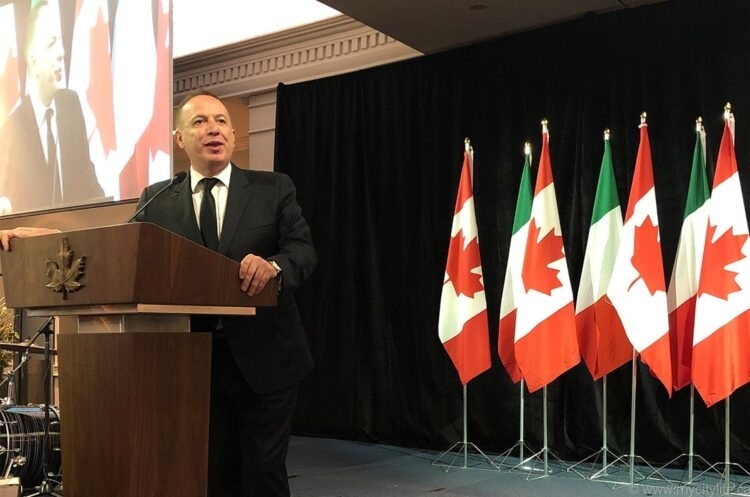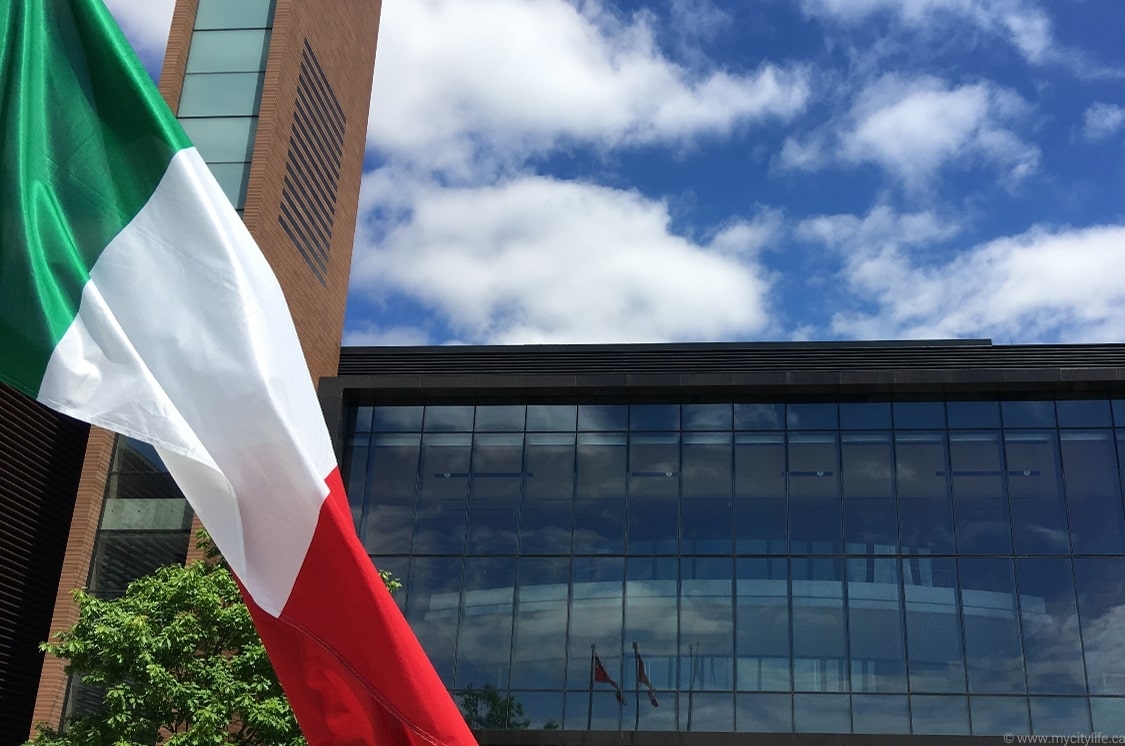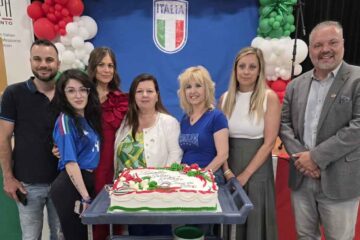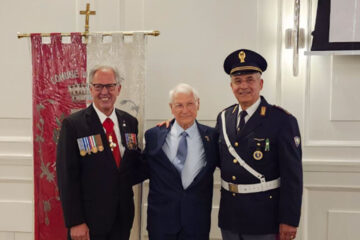Trudeau apologizes for the internment of Italian Canadians in WWII
Today, Prime Minister Justin Trudeau delivered a formal apology in the House of Commons to the hundreds of Italian Canadians who were interned during the Second World War. As something that saw more than 600 men and women taken as prisoner of war camps, with 31,000 labelled as “enemy aliens”, the apology comes after more than 80 years.
“To the men and women who were taken to prisoner of war camps or jail without charge; people who are no longer with us to hear this apology; to the tens of thousands of innocent Italian-Canadians who were labelled enemy aliens; to the children and grandchildren who have carried a past generation’s shame and hurt; and to their community — a community that has given so much to our country: we are sorry,” Trudeau said.
The following is a statement issued by Vaughan Mayor Maurizio Bevilacqua in response to the apology.
“Today, I join Italian Canadians and everyone affected by this tragedy in welcoming Prime Minister Justin Trudeau’s formal apology in the House of Commons. Canadians of Italian heritage have made and continue to make an extraordinary contribution to nation-building in Canada. Despite this contribution, the Government of Canada interned hundreds of people of Italian heritage during the Second World War solely because of their ethnic origin.
“In 1940, under the War Measures Act, approximately 31,000 Italians living in Canada were officially classified as ‘enemy aliens’. Italians and other ‘enemy aliens’ in Canada were subjected to significant pain, hardship and discrimination. They faced persecution and internment, based on the perceived threat to national security and were detained without cause.
“Canadians with names of Italian origin or whose names even sounded Italian were forced to register their names with the RCMP. For many, all of their assets — their entire life’s savings and means for supporting their families — were seized. Restrictions on travel were imposed, and many Italian organizations were declared illegal, as was teaching the Italian language. The events leading up to and after the internment left trauma and a deep sense of shame within the Italian community. Their stories remained private, even amongst their family members. Many people suffered in silence and isolation. The Italians sent to internment camps during the Second World War have since passed, but their memories and stories live in our hearts and communities. It is my hope that the Canadian government’s apology will replace that shame and silence with acceptance and education.
“My family’s story is a familiar one to the Italian Canadian community. I arrived in Canada at the age of ten. My mother and father left Italy in search of greater opportunities abroad. They sacrificed their entire lives so their children could seize opportunities, reach higher, and most importantly, give back to their community. This is the Canadian dream, which has been adopted by Italians and immigrant communities who helped shape Canadian society.
“Today, more than 80 years after the events that shaped the nadir of the Italian community’s experience in Canada, we welcome the Canadian government’s apology. This acknowledgment and apology are an important and meaningful step towards restitution for the injustices that plagued the thousands of people and families impacted by this tragedy.
“It is my hope that this apology will serve as an opportunity to educate future generations about the injustices of the past; injustices like the Residential School system, Transatlantic slave trade, Komagata Maru incident, Chinese head tax that was imposed from 1885 to 1923, the period of 1923 to 1945, where strict immigration rules prohibited Jewish people from entering our country, and, the internment of Italian Canadians. The painful memories live on in the stories that have been passed on through generations, and these stories remain etched in our hearts and minds. These are not proud moments in our nation’s history, and we shall never forget them, for those who do not learn from the past are condemned to repeat it.
“Canada is regarded around the world as a country of opportunity, fairness, hope and justice. Our national wealth, prosperity, cultural and social riches have been fuelled by the imagination, work and ingenuity of new Canadians. Despite events like the Italian internment in Canada, the Italian Canadian community has been able to succeed, achieve, prosper and contribute to Canadian society in significant and meaningful ways.
“Over the years, immigrants have consistently faced challenges and struggles they have had to overcome. As Canadian citizens who uphold the values of justice, freedom and democracy, we must acknowledge the hardships and obstacles that immigrants have encountered in their journey of hope for a brighter future in Canada. Within our homes, our communities, our province and indeed our nation, we must refrain from the politics of exclusion, discrimination and racism.
“During my days in Ottawa, I strongly supported legislation to advance diverse and inclusive communities and safeguard Charter rights. As a Member of Parliament, I took a stand against xenophobia by calling for higher immigration levels and supported the call for the Canadian government to recognize the injustice that was done to persons of Italian origin through their ‘enemy alien’ designation and internment during the Second World War and to provide for restitution and promote education on Italian-Canadian history.
“The apology offered by Prime Minister Justin Trudeau on behalf of the Government of Canada is a step in the right direction. The healing process may now begin. While it should never be forgotten, we are grateful to have the opportunity to close this sad chapter of Canadian history.”










































































